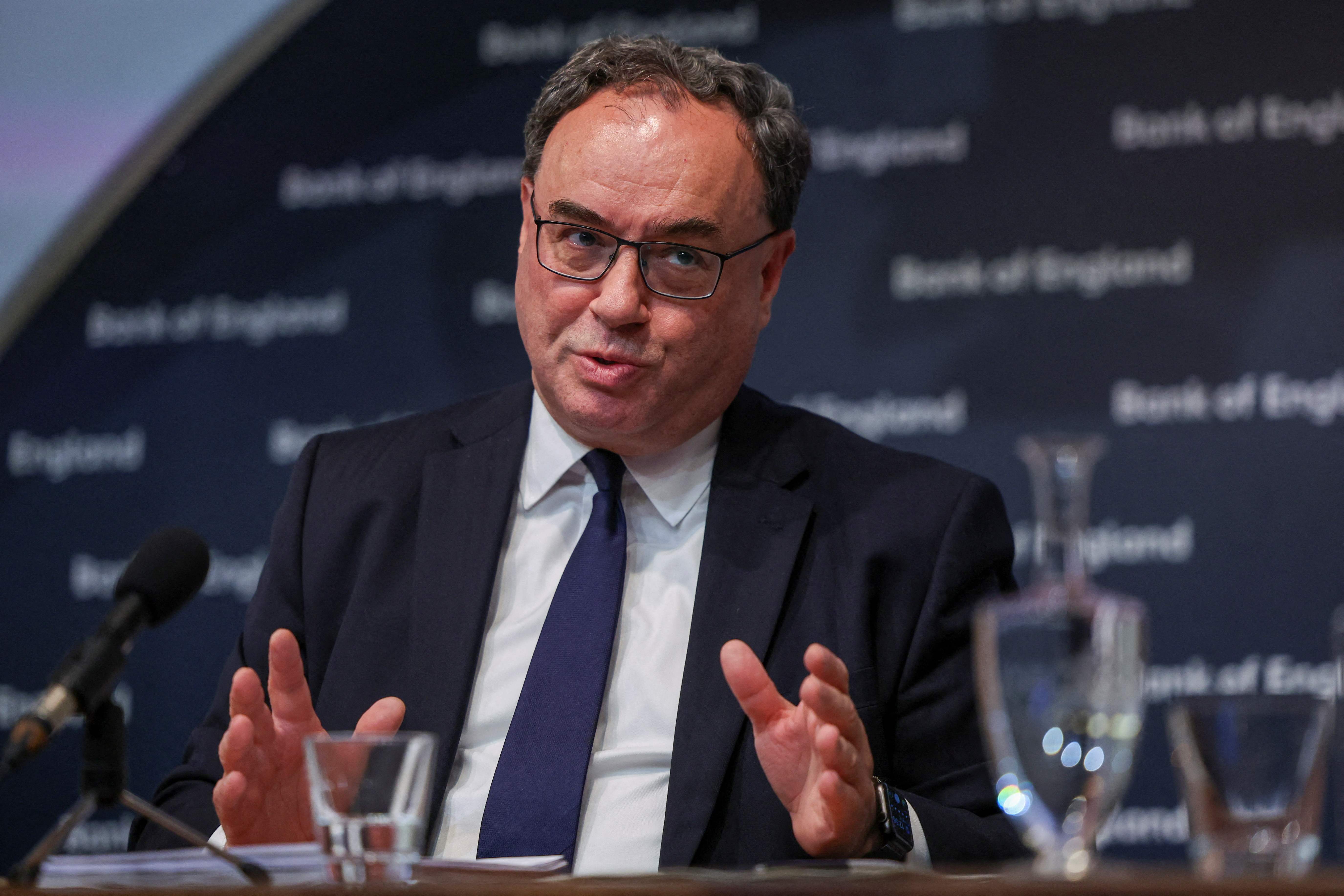UK to avoid recession but inflation falling slower than expected, says Bank of England
Andrew Bailey admits economist’s warning about becoming poorer was bad ‘choice of words’

The UK will avoid a recession this year but inflation will fall slower than hoped, the Bank of England said on Thursday as it raised interest rates by 0.25 per cent to their highest level since 2008.
Its Monetary Policy Committee (MPC) voted 7-2 in favour of raising the rate to 4.5 per cent in order to fight stubbornly high inflation.
GDP is now expected to be flat over the first half of this year, growing 0.9 per cent by the middle of 2024 and 0.7 per cent by mid-2025, it predicted.
But while inflation is expected to decline sharply from April, it will still fall at a slower rate than previously projected and will only fall as far as 5.1 per cent by the end of this year.
“The committee continues to judge that the risks around the inflation forecast are skewed significantly to the upside, reflecting the possibility that the second-round effects of external cost shocks on inflation in wages and domestic prices may take longer to unwind than they did to emerge,” the MPC said.
Andrew Bailey, governor of the Bank of England, refused to give a steer on future interest rate decisions, adding that the central bank will be guided by evidence. “We will be guided by the evidence and that’s very important,” he said.
Paul Johnson, director of the Institute for Fiscal Studies, told LBC there is an increased chance interest rates might continue to rise.
“I think relative to expectations a few months ago, which thought we would be peaking at 4.25 per cent or 4.5 per cent where we are now, there’s more chance, actually, than there was a couple of months ago that there, I’m afraid, might still be further to go,” he said.
“Financial markets are expecting further increases. And the extent to which inflation really does seem to become embedded may lead the bank to do more.”
Meanwhile, Mr Bailey suggested the Bank’s chief economist Huw Pill chose the wrong words when saying that Britons should accept they are poorer now because of inflation.
Mr Pill told a podcast that someone will need to get poorer as the value of what the country exports has increased more slowly than the cost of what it imports.
Mr Bailey told reporters on Thursday: “This inflation is particularly difficult for those least well off because it is concentrated in what are called the essentials of life – food and energy – and people on lower incomes have a larger proportion of their consumption in the essentials of life.
“I want it to be very clear that we are very sensitive to the position of all people, but particularly people on lower incomes. I don’t think Huw’s choice of words was the right one in that sense, I have to be honest, and I think he would agree with me.”
Mr Bailey also said he had refused a pay rise this year as he was asked whether people in the City of London should lead by example to help keep inflation down. “On the level of pay rise for executives, these things are set by firms not by us,” he said.






Join our commenting forum
Join thought-provoking conversations, follow other Independent readers and see their replies
Comments